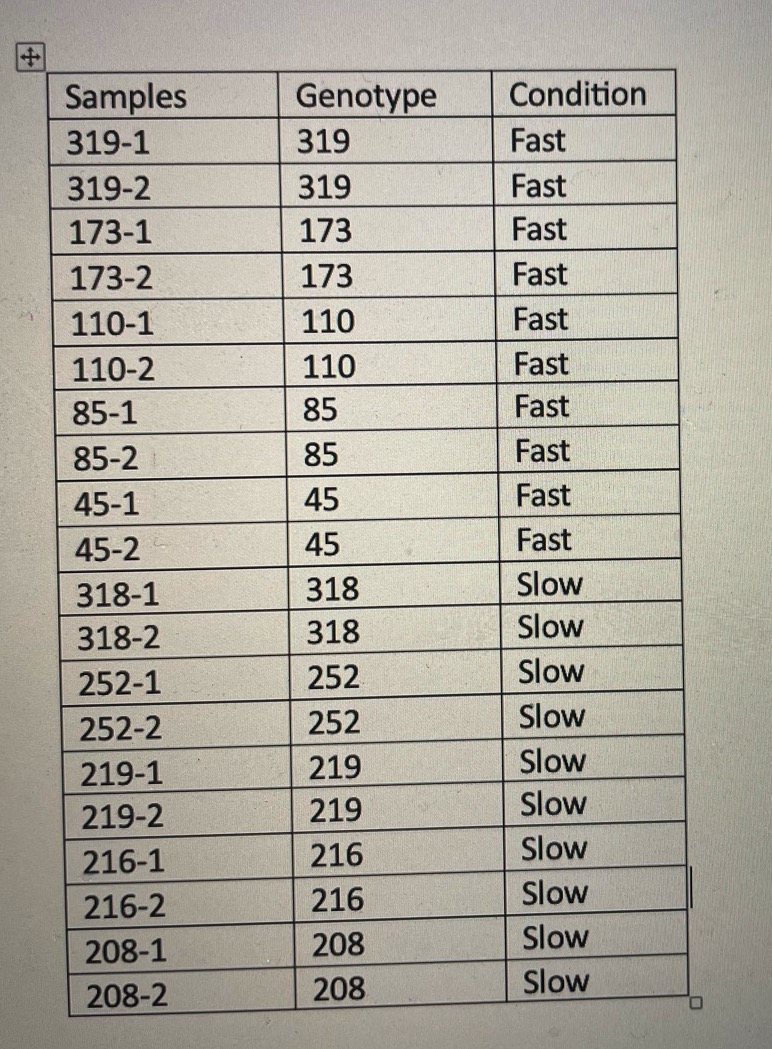Hi all,
We are trying to study the differential gene expression analysis of genotypes with contrasting development rates (Fast and slow). A total of ten genotypes were selected based on their contrasting development rate phenotype in the greenhouse. We have RNA seq data of 5 genotypes each of fast and slow development rate categories with two biological replicates per each genotype. My data looks like this:
Our main question is to study differentially expressed genes between fast and slow development rate conditions. I am using Deseq2 package to study the differential gene expression analysis. I am not sure how to account for the biological replicates of genotypes in the model. I have done the analysis by using design ~ condition as a model. But I think I should also account for genotype differences and biological replicates because we are also interested in doing pairwise comparisons, for e.g. "110 vs 219". I tried using genotype + condition but it gave me an error "the model matrix is not full rank, so the model cannot be fit as specified". Maybe because my genotypes have only condition (high or low). Do you have any suggestions on how to deal with such type of an experimental design?
Thanks!
Code should be placed in three backticks as shown below
# include your problematic code here with any corresponding output
# please also include the results of running the following in an R session
sessionInfo( )


